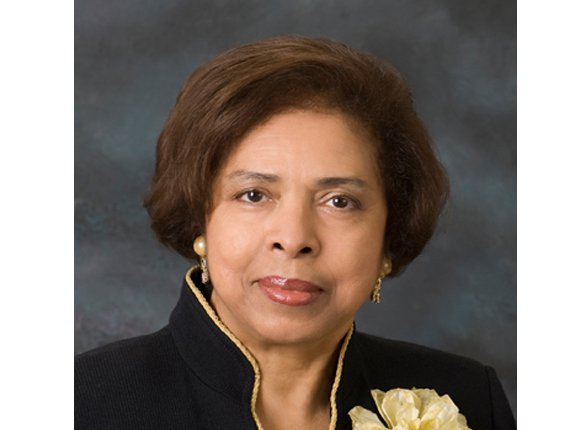Trump’s choices portend disaster
12/2/2016, 6:27 p.m.
Dr. E. Faye Williams
Jane Elliott is not commonly known in American households. She holds no fame among the elites, nor does she command any known political clout. She doesn’t boast of great wealth. Seeing her, one probably would think of her as being non-threatening, even grandmotherly.
Her appearance, however, belies her nature. She’s fiercely committed to an anti-racist philosophy and equality and justice for all. She’s a pioneer in the field of diversity training. She has taken her message across the United States and Europe. She strikes fear in the hearts of racist white people and doggedly breeches their walls of emotional superiority and white privilege.
No, she’s not a person of color. She’s the little white woman you may have seen asking an audience of white people if they’d be willing to receive the same treatment as African-Americans. After a totally negative response, she admonishes them for their understanding of the discriminatory treatment and willingness to accept it for others while rejecting it for themselves. For nearly 50 years, Ms. Elliott has challenged racist behavior and injustice in America.
An important consideration of her question to her audience was that it uncovered an unwillingness to condemn white racism as the root cause of other, seemingly non-related, behavior. It confirmed the willingness of many to accept and endorse white racism as an integral part of “the American way of life.”
I have said previously that selections for President-elect Donald Trump’s inner circle and nominations for his cabinet provide us with clear indication of how he plans to govern. Like Ms. Elliott’s question, President-elect Trump’s selections indicate his unwillingness to acknowledge the destructive impact of racism upon American society. The inclusion of Steve Bannon, Reince Prebus, Rudy Giuliani and Jeff Sessions among choices to fill important positions gives all of us reason for concern.
The selection of Mr. Prebus as White House chief of staff and Mr. Bannon as chief strategist and senior counselor portend imminent disaster, especially for those committed to human rights. As Republican Party chairman, Mr. Prebus ignored and gave silent approval to Mr. Trump’s racism, sexism, religious intolerance and general bad behavior during the campaign. Mr. Bannon’s position as executive chairman of Breitbart News and champion of alt-right politics bring his objectivity regarding issues of societal tolerance into question.
Mr. Giuliani has distinguished himself as one of Mr. Trump’s most aggressive campaign “hatchet men.” Mainstream media reporters characterized many of his statements as maniacal.
The dirty little secret of U.S. Sen. Sessions of Alabama, President-elect Trump’s pick for U.S. attorney general, is that his professional history is littered with accusations of racism. When he was an assistant U.S. attorney for Southern Alabama, Sen. Sessions refused to prosecute two Klan members for the death of Michael Donald, a black man. He failed to receive confirmation as a federal judge because of his history. I’ve seen nothing that would suggest his views have changed. Is this who we’re to believe will responsibly enforce the laws in the interest of all citizens?
Like Ms. Elliott’s audience, President-elect Trump is turning a deaf ear to complaints about the fitness of his selectees to fill positions that impact all of us. Like Ms. Elliott’s audience, it appears that President-elect Trump is willing to ignore the imperatives of a discrimination-free society. He has given us no reason to believe otherwise.
The writer is national president of the National Congress of Black Women.







